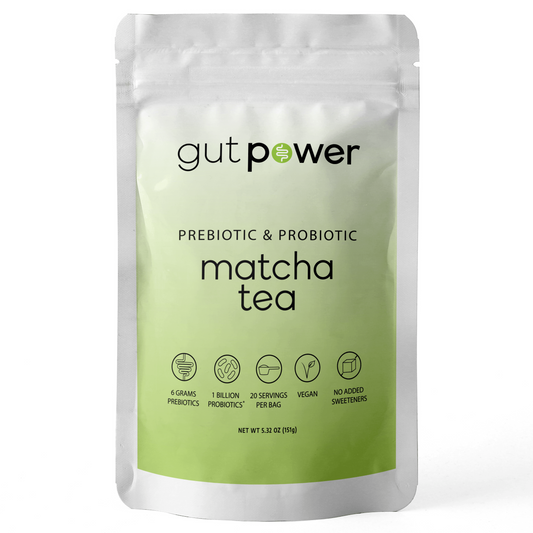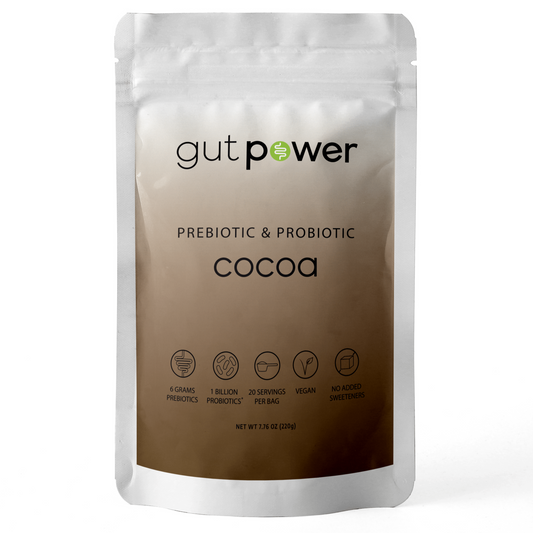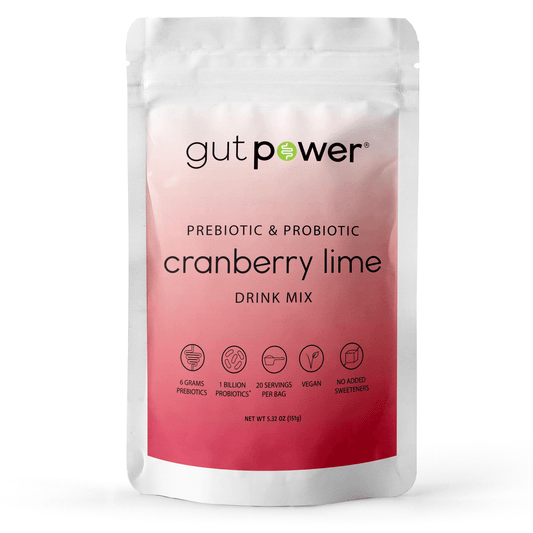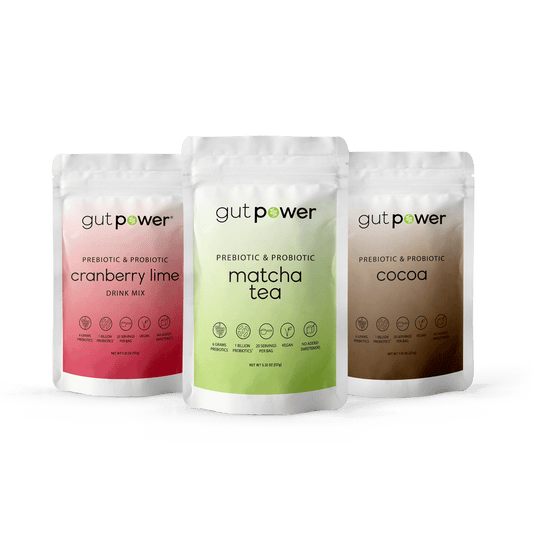Why am I so bloated all the time? Today, we’ll break down the science of this topic so you can understand why it happens and how to stop bloating for good.
What Causes Bloating?
While bloating can have a myriad of causes, one of the most common causes of bloating is microbial imbalance in the gut.
You have a whole host of microbes that live inside your gut - and don’t worry, that’s a good thing!
The gut microbiome - the collection of bacteria, viruses, and yeasts that live in your intestine - do a whole lot of good for your body, including helping you digest your food properly, influencing your immune system, and even making nutrients for you to absorb.
But in order to do all that and not cause problems, the microbes in your gut need to be in proper balance. That means plenty of beneficial bacteria, and little “bad” bacteria.
When this balance gets off-kilter, it can be related to some annoying digestive symptoms like bloating, gas, constipation, and diarrhea. (How fun.)
Some other causes of bloating include:
- Irritable bowel syndrome (IBS)
- Inflammatory bowel disease (IBD), like Crohn’s disease and ulcerative colitis
- Gut infections
- Constipation
- Hormone fluctuations during the menstrual cycle
- Food intolerances or allergies
Because there are causes beyond microbial imbalance in the gut, it’s important to see a healthcare professional about your bloating to rule out anything more serious.
The good news here is that there are some simple dietary and lifestyle changes you can make that may provide some bloating relief.
How Long Does it Take to Get Rid of Bloating?
Balancing your gut bacteria in an effort to relieve bloating can take some time.
Trust us, if we could create something to get rid of bloating immediately, we would!
That said, there are certain things that can help get rid of bloating fast. But in addition to incorporating these techniques, you’ll want to focus on the longer-term solutions that we’ll discuss shortly.
Some Short-Term Bloating Remedies:
- Yoga for digestion - certain yoga positions may help to relieve the gas buildup that can contribute to bloating
- Gut-directed hypnotherapy - while it might sound strange, there’s a lot of evidence supporting the use of gut-directed hypnotherapy for IBS-like symptoms like bloating
- Digestive bitters and/or digestive enzymes - both of these options help you break down your food more effectively, which can often help relieve bloating after eating (take these supplements before or with meals, though, not after)
- Magnesium - if your bloating is related to constipation, taking a magnesium supplement can help relieve constipation and, thus, bloating
- Tea for bloating - certain herbs like ginger and peppermint make for an excellent cup of tea that may help reduce bloating
Should You Avoid Foods that Cause Bloating?
When you’re dealing with a bloated stomach, it can be very tempting to take out any and every food that seems like it might be exacerbating the problem.
This is especially the case if you get a bloated stomach after eating - after all, it seems logical to try taking out certain foods when you always experience bloating after eating.
Unfortunately, this can lead to an overly restricted eating pattern or it can be too difficult to determine what specific foods cause bloating for you.
Truth is, there are no foods that across the board cause bloating for everyone.
If you have an allergy or intolerance, eating those foods may cause bloating (among other symptoms), but following certain diets that claim to take out foods that cause bloating can often lead to more problems - not to mention that most of these diets are no fun!
Bloating is more related to the bacteria in your gut than any foods you’re eating.
Because of this, it’s best to focus on improving your gut bacteria with the techniques we’ll discuss in this article in addition to a healthy diet and lifestyle rather than trying to restrict food after food in hopes of relieving your bloating.
If you think your diet may be contributing to your bloating, it’s a good idea to work with a dietitian or other healthcare professional, not follow an “anti-bloating” diet you find online. Your diet should be tailored to you.
Long-Term Bloating Relief: Support Your Gut Microbiome
Because bloating can be related to imbalanced gut bacteria, it’s important to focus on rebalancing the gut microbiome.
Let’s go through some of the ways you can support your gut microbiome to maximize your bloating relief.
Probiotics for Bloating
When it comes to balancing your gut bacteria, probiotics can be very useful.
That’s because taking probiotics puts healthy gut bacteria directly into your gut microbiome, immediately tipping the balance toward beneficial bacteria.
Now, just because you immediately have a better balanced microbiome, it does not necessarily mean that you’ll feel that difference right away.
Typically, it takes at least a few weeks of consistently taking probiotics to start noticing improvements in your symptoms.
You’ll also want to be particular about what specific probiotic strain you take - different probiotic strains have different effects on the body, so if you’re looking for bloating relief, make sure you know that the strain you choose has evidence supporting its use for that purpose.
Prebiotics for Bloating
Not sure what a prebiotic is? Think of prebiotics as fuel for your good gut bacteria. Those little critters get hungry!
When you fuel your good gut bacteria with plenty of prebiotics, they are healthy and happy - and that makes for a healthy, happy stomach, too!
But prebiotics can be a double-edged sword: many prebiotics can actually cause bloating while simultaneously helping your gut.
However, there are specific prebiotics that have been shown to be much more tolerable (for example, Sunfiber). Make sure to check that the prebiotic you’re taking is meant for those who suffer from digestive issues like bloating, otherwise you could cause more harm than good.
In addition to balancing out your gut bacteria, many prebiotic fibers are helpful in moving matter through your digestive system at the right speed.
This means that they are useful in preventing constipation and making sure you have regular bowel movements. Less constipation = less bloating.
When to See a Healthcare Professional
Because there can be many reasons why you are bloated, it’s always a good idea to see a health professional about it.
Given that certain infections like small intestinal bacterial overgrowth (SIBO) are common with bloating, your doctor may prescribe you medication to help clear these infections.
As mentioned previously, it can also be useful to see a dietitian if you believe your diet may be contributing to your bloating.
It’s definitely wise to support your gut with the tactics we’ve mentioned in this article, but never forget to use your healthcare provider as a resource!
The Bottom Line: At Home Bloating Remedies
It’s always a good idea to see a health professional about your bloating, but there are definitely things you can do at home for bloating relief.
These include short-term tactics like tea for bloating, gut-directed hypnotherapy and yoga in addition to long-term solutions like prebiotics and probiotics for bloating to assist in rebalancing your gut microbiome.





